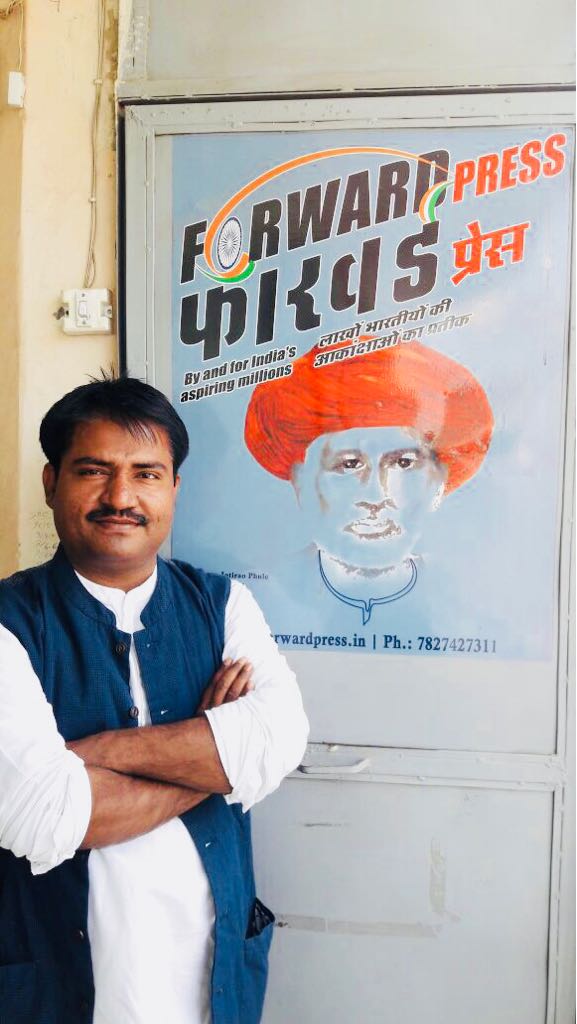Lalu ji, what are the political implications and dimensions of the agitation you’ve launched demanding publication of the figures of the caste census?
See, the caste system is a reality of the Indian social structure. Sharing of resources is also based on the caste system – whether it is the question of ownership of land or jobs or anything else. Babasaheb Ambedkar was well aware of this reality and that was why he advocated reservations. Reservations for the deprived sections have definitely brought about a change but the backward classes got their due only after the implementation of the Mandal commission’s recommendations. The impact of Mandal on society is obvious. The deprived classes are today marching forward in every arena. My view is that the publication of the caste census report will reveal the current status of Indian society. It will help us fix the shares of different communities in the country’s resources. Presently, this is being decided on the basis of the caste census of 1931. But since then, the country has changed beyond recognition.
It is true that the Mandal commission has transformed the status of the OBCs. But are you satisfied with this?
There is no question of being satisfied or dissatisfied. Social and political change is a continuous process. It does not and cannot happen in one go. When I was the chief minister of Bihar, the situation was entirely different. Societal conflict had come out into the open. Bitterness between different sections of society was one reason for it. But the situation did change. Just compare the census reports of 1991 and 2001. It reflects the social change that has come about. The literacy rate of Bihar was less than 50 per cent in 1991. Within a decade, it crossed the 60 per cent mark. Since then, the situation has improved even further. This means that society has learnt how to grow, how to progress. People now send their children to schools even if it means forgoing their essential needs. Change has come about also in the field of politics. When we gave voice to the poor, the opposition branded it as jungle raj. But whatever they say, they cannot stop the deprived sections from claiming their share.
But did you do as much as you could have for the development of the Backwards and Dalits?
As I had said earlier, development is not linear. Societal change is also development. In my time, Bihar was synonymous with political instability. Social conflict was at its peak. Implementation of the Mandal Commission recommendations only made it worse. But we did not give up. We launched a string of schemes for the welfare of the poor. A large number of people were homeless. I launched a special campaign to provide them with roof over their heads. I believe that only when one has one’s own house can one think of progressing in other fields. I also found that the number of schools was inadequate. It was my view that every village should have a primary school and every block a high school. I tried hard to accomplish this target. There was a big shortage of teachers. A large number of vacancies were advertised. Teachers were appointed. I also launched a campaign for economic empowerment of the people.
Your opponents say that if the report of the caste census is made public, you will suffer the biggest loss. Apparently, they are hinting at the changes in the number of members of different castes that the report will reveal.
Loss! What loss? Bhai, when the report of the caste census comes into the public domain, it will reveal details about the members of all communities and castes. It will be the beginning of the change that will take place in the future. Today, people don’t know what the populations of different castes are. Once it is known, we will be able to determine what should be the share of each community. Those who are worrying about my loss should better worry about themselves.
Why is the central government dragging its feet on making the report public?
See, it is very clear. This is a conspiracy to deprive the majority of its rights. They do not want the majority Dalit-OBCs to demand a bigger share in keeping with the growth in their population. But I am determined not to rest till the report is made public. Now, people in every corner of Bihar have understood the importance of this agitation. During the Bihar Bandh on 27 July, the people showed how strongly they feel about this issue.
Last question. Your agitation is not getting support at the national level. Any reason?
Who told you this? At the national level, we met Manmohan Singh ji demanding that a caste census be conducted. Many leaders were with us on this issue at the national level. Leaders from both north and south India agreed with the demand and supported it. Now, demands for the publication of the report are being raised from Delhi to UP to Bihar. In the coming times, this agitation will spread further.
Published in the September 2015 issue of the FORWARD Press magazine






